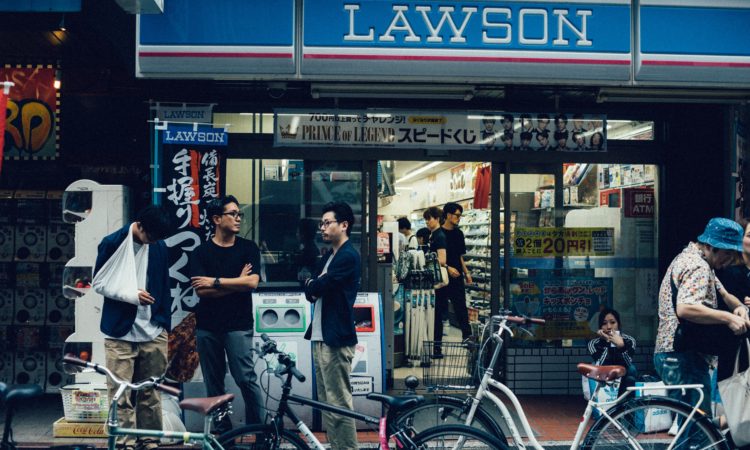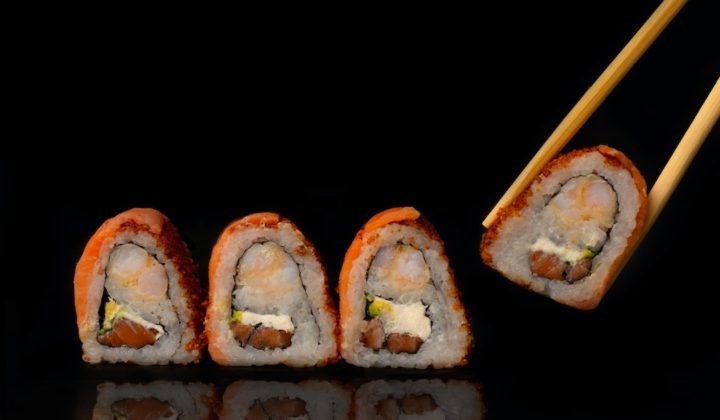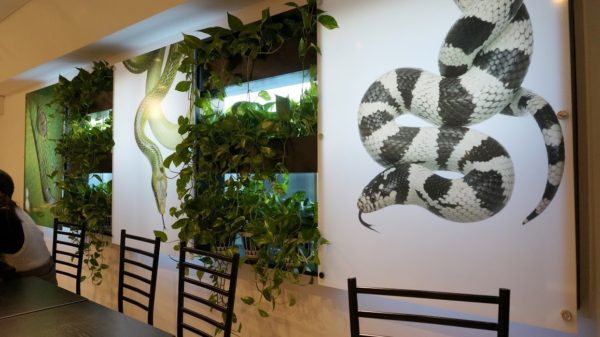As unique and beautiful as Japan is, if you are a foreigner living in Japan, there are always things that you find different from your home country. From food and culture to language, there are many things you might be missing from home and for that same reason some find it difficult to adjust to life in Japan. Being Sri Lankans ourselves, we have also faced various challenges but have managed to overcome them. So, if you are a Sri Lankan, or any foreigner living in Japan and finding it hard to adjust, this one’s for you!
Being Sri Lankan in Japan
1. Food
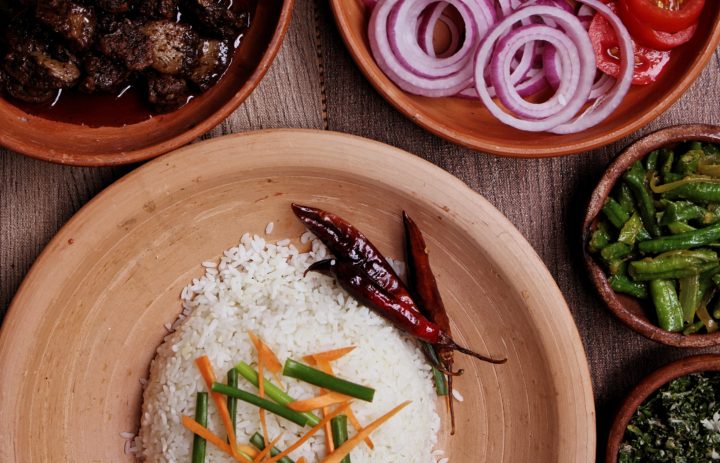
Credits- Unsplash
Who doesn’t miss the taste of their local food when they are away from home? But for us Sri Lankans, this cannot be more true because food is one significant way that we feel connected to each other and close to home. Whether we are returning a favor or making new friends, food is always our go-to method, proving the phrase that ‘the way to man’s heart is through his stomach’. One real challenge we face here in Japan is finding food that satisfies our ‘home food’ cravings. Sri Lankans love spicy food and as many would know, it is something that is really hard to find in Japan. That is why South Asian restaurants and spice shops are all too familiar to any Sri Lankan in Japan!
Indian or Nepali food is the closest we can get when we want a taste of spicy Sri Lankan food or simply when we miss home. Also, if you ever visit your Sri Lankan friends in Japan, do not be surprised to see a kitchen full of various spices that come all the way from Sri Lanka or from Indian spice shops. That is to say that if you are someone who is longing for spicy food, befriending a Sri Lankan would be a good idea for you!
When talking about food, it is impossible to forget the struggle of shifting from eating by hand to eating with chopsticks! Even though western restaurants in Japan offer cutlery sets, you cannot avoid chopsticks if you want to try proper Japanese food. During the first few months in Japan, we had to practice eating with chopsticks at home so that we won’t be embarrassed when we go to a Japanese restaurant and I think every Sri Lankan can relate to this!
That being said, Japanese cuisine is a different but wonderful flavor! Even though some may find it hard to adjust to Japanese flavors at first, once you start tasting them there is no going back. We weren’t big sushi and udon fans ourselves when we first came to Japan but with time we have grown to like them a lot. However, if you are a ‘spicy curry’ lover reading this, do not look for a high level of spiciness in Japanese curries; for they are catered to Japanese people who love mildly spicy curries.
2. Behavior
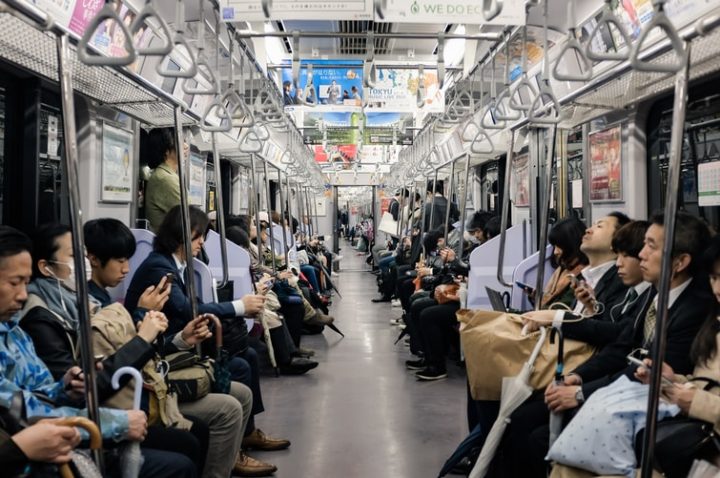
Credits-Unsplash
Though most of Japan is considerate to foreigners, there are some instances that we have come across racist behavior from certain individuals. It has and is most likely to occur on trains. During peak hours, trains in Japan can be quite crowded and it is normal to be squeezed next to another person while sitting on a train. There have been many occasions where I have sat next to a Japanese person and they have given me odd glances while distancing themselves physically either by moving their arms away in an evident manner or moving to a different seat the moment I sit beside them. As this was pre-COVID-19, the need for social distancing was nonexistent, thus these instances were not a consequence of the pandemic
However, as the saying goes that even if there is a bad apple among the bunch it does not mean everyone is the same. Japan has some of the kindest people we have ever met, who have tried to make our lives more comfortable amidst the language barriers and cultural differences. We have even met so many kind and helpful people on the street who have always helped when we were struggling with something. For instance, while travelling we were unable to find the platform in a station and we asked help from a local Japanese lady who was not sure herself but was insistent on helping us until we found the platform. Another occasion was when I fell off my bicycle, a random passerby immediately picked up my bike and asked me if I was okay. These were just 2 occasions out of the many, and such random acts of kindness have definitely made life as a foreigner in Japan much easier
There will always be a few bad apples but the good outweighs it and it’s one of the reasons we have grown to love Japan
3. Culture Shock

Credits- Canva
Punctuality
If you are a Sri Lankan living in Japan, I’m sure there were some big culture shock experiences that you may have experienced. One major shock that we personally experienced was the punctuality of Japanese people. Even the trains arrive exactly on time and in Japan, it is considered late if you are a few mins late for anything! As a Sri Lankan, this has been a very different experience as Sri Lankans are not as punctual and things do not work to the minute back home. Although I think the experience has made us understand the value of punctuality and why it is a respected trait in Japan.
Manners
Japanese manners have also been a culture shock experience to many Sri Lankans. For instance, Sri Lankan trains and public transport are quite loud and people eat and drink whenever they wish but in Japan it is the complete opposite! The Japanese are extremely considerate of each other on the train or any public transport and they make it a point to be silent and not take calls as well as avoiding eating or drinking so that the train stays clean. The act of bowing as a sign of respect and the politeness and orderly manner of doing things in Japan is definitely a change of pace for many Sri Lankans but after being in Japan for a while it starts to become part of your daily routine!
Customers Are Number One
Another thing that really surprised us was how much priority and regard businesses give their customers. While working in restaurants and also visiting shops, we noticed that the owners or the staff are expected to yell ‘irasshaimase’ which means welcome, when a customer enters the shop and ‘arigato gozaimashita’ meaning thank you very, much when the customer leaves. Definitely a surprising custom, this turns the heads of many Sri Lankans as such greetings are not present in Sri Lanka as well as the fact that interaction with customers is minimum unless the owner personally knows them.
Click here to know more about Japanese etiquette and customs.
4. Work Ethics

Credits- Canva
It would be very hard for any country to stand on par with Japan when it comes to its work ethics. Coming from a country where people are more committed to their private life than to their work life, it was surprising to see how devoted people are to their work. As is well known, Japanese people are really hard working despite the type of job they are doing or the rank they are holding. Therefore, in Japan, it is not uncommon to see a manager of a restaurant cleaning tables and serving food to customers on a busy Saturday!
Another work ethic that is very different from Sri Lanka yet admirable is how neat, clean, and organized Japanese workplaces are. Be it a restaurant, factory, or office, Japanese people make it a point to have a clean and neat surrounding at all times. Every day after work, it is mandatory to arrange their workstation, sweep the floor, and prepare things for the next day. What is even more amazing is that unlike in Sri Lanka, cleaning is mostly done by the employees themselves and is considered everyone’s responsibility.
Being Sri Lankan also means that you love an extra holiday because, in Sri Lanka, every month has at least one holiday to spend time with your family, to go on a trip you have been waiting for, or simply to laze around at home. But in Japan, it is not the case as it changes or reshuffles its holiday calendar to balance out the workdays and holidays. The only long holiday in Japan is the ‘golden week’ which is at the end of April spanning over 4 days. So if you are a Sri Lankan waiting to work or study in Japan, prepare yourself to work hard with minimum holidays!
If you want to know more about work-life in Japan read this article!
5. Weather

Credits- Unsplash
Even though this is our last point, one of the first things that hit any Sri Lankan who comes to Japan is the weather. Sri Lanka’s weather is extremely hot and humid all year long and Japan’s weather changes based on the season. While the summer weather is somewhat similar between the two countries, Sri Lankans find it undoubtedly difficult to bear the cold winters. If you see a Sri Lankan wrapped in bundles and bundles of winter clothing now you know why!
Being a Sri Lankan in Japan: Good or Bad?
Being a Sri Lankan in Japan can be challenging amidst different cuisine, language, culture, and mannerisms of the Japanese but at the same time, it’s an amazing experience. One from which we have learned many things and the more we stay, the more we grow to appreciate it and adapt while enjoying the best Japan has to offer.
If you are a Sri Lankan and you have more to add to this list let us know in the comments!
Avanthi and Oshadhi
Sri Lanka
If you want to know more about how Japanese work culture is different from your own country, check out this article:


